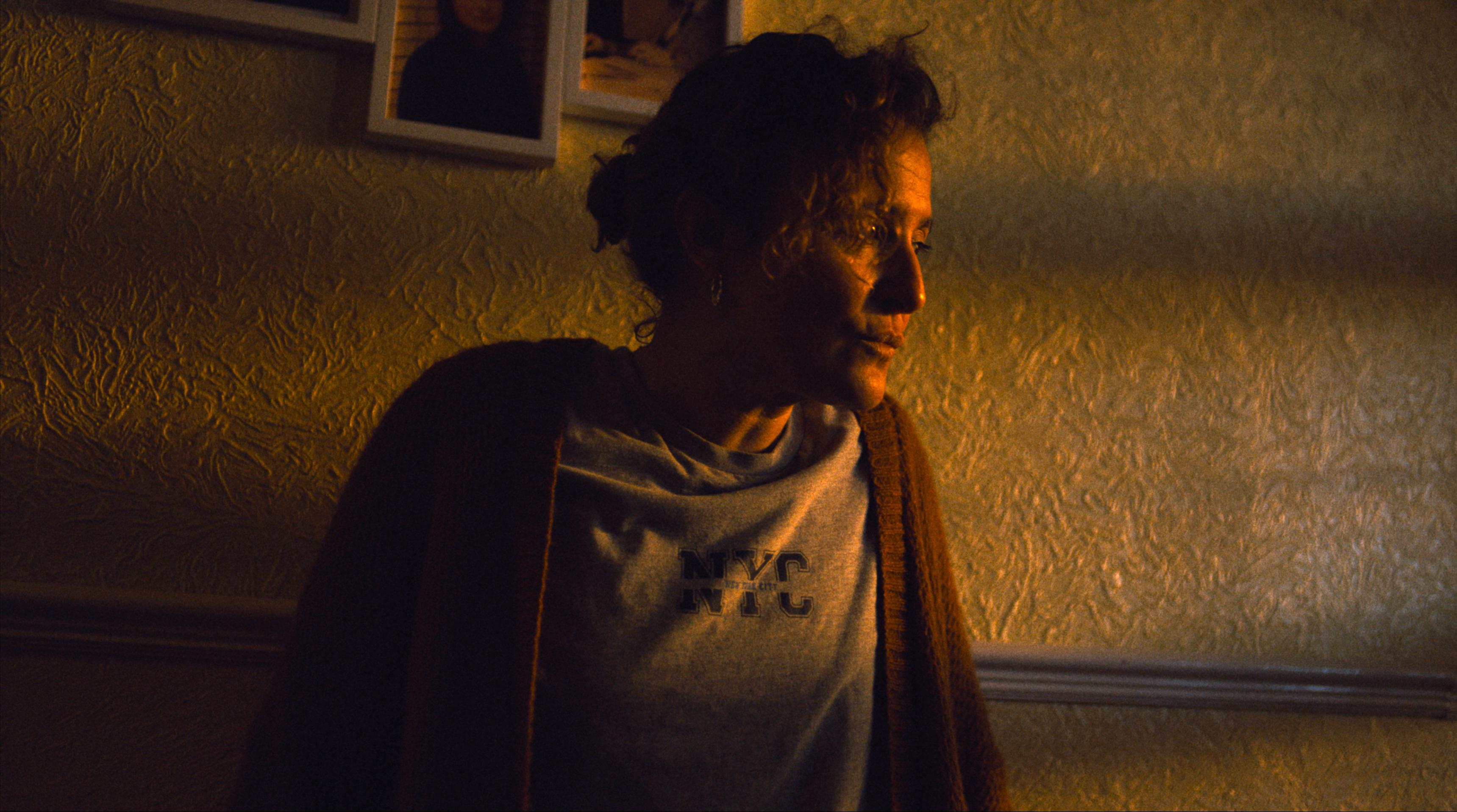Most visited Last 7 days
Deep Cover (2025)
Deep Cover (2025), directed by Tom Kingsley and now streaming on Prime Video, blends action, crime, and comedy in a distinctly British package. The premise? Three aspiring actors—Kat (Bryce Dallas Howard), Marlon (Orlando Bloom), and Hugh (Nick Mohammed)—are recruited for police undercover work, using their improv skills to infiltrate London's criminal underworld.
What Works
Entertaining ensemble: Bryce Dallas Howard brings charm and energy as the improv teacher. Orlando Bloom shines with comedic timing, and Nick Mohammed's lovable awkwardness adds levity and heart.
Sharp writing & pacing: Critics commend the witty script and brisk pace—Decider calls it "well‑paced, amusing escapism," while Tom’s Guide notes its 95% Rotten Tomatoes approval and satisfying blend of humor and deft action.
Genre fusion: The film enjoys a reputation as a "finely‑tuned action‑comedy" infused with just enough crime‑drama edge to keep stakes high while laughter flows.
What Doesn’t
Surface-level depth: Some critics feel the characters aren’t fully fleshed out. Its comedic, lightweight tone means it doesn’t dive deep into emotional complexity.
Conventional arc: Though entertaining, the film doesn't break new ground beyond its core premise—improv actors caught in real criminal heat.
Final Take
Deep Cover is a breezy, crowd-pleasing action-comedy elevated by its cast’s dynamics and clever premise. If you enjoy shows like Barry or crime comedies with quirky edges, it’s worth your time. It won’t leave a lasting mark—but for a light, fun watch with occasional surprises, it hits the spot.

Restless (2024)
Restless (2024), the feature debut from Jed Hart, is a British psychological thriller that transforms the all-too-relatable horror of neighborly noise into a claustrophobic portrait of anxiety, rage, and desperation. Led by Lyndsey Marshal in a riveting central portrayal, the film starts strong—but an implausible final act leaves it stumbling.
What Works
Lyndsey Marshal’s extraordinary lead
Marshal delivers a performance that captures her character Nicky’s descent from quietly routine life into psychological collapse with nuance and authenticity. Her portrayal of sleep deprivation, emotional fatigue, and rage feels tangible and sympathetic.
Terrifyingly realistic premise
With Deano (Aston McAuley), the loud, inconsiderate neighbor, Hart taps into a fear many viewers know all too well. The escalation—from pounding music to outright intimidation—is unsettlingly true-to-life.
Effective sound design & tone buildup
The film’s auditory landscape—thudding bass, muffled screaming, household objects trembling—pulls you into Nicky’s headspace. Hart builds tension gradually and precisely, blending subtle humor with mounting dread.
What Doesn’t
A second-half tone shift that undercuts plausibility
Once the film transitions from simmering tension to outright revenge fantasy, credibility falls apart. Collider and others note the narrative becomes absurdly violent and tonally inconsistent—Nicky evolves into a one-note avenger, and key plot developments feel contrived.
Convenient climax & problematic dynamics
The ending hinges on unlikely coincidences that resolve the story too neatly, breaking the realism established earlier. Some reviewers flagged scenes that unintentionally reinforce unfortunate racial dynamics, muddying what could've been a smart critique of suburban power structures.
Underdeveloped secondary characters
While Nicky and Deano are richly drawn, supporting figures—like Nicky’s would-be suitor Kev (Barry Ward)—remain sketchily portrayed. Their inclusion feels more functional than fleshed out, limiting emotional complexity.
Final Verdict
Restless begins as a claustrophobic slow-burn of psychological disintegration and class-based conflict, elevated by a compelling central performance and immersive craftsmanship. But as it spirals into a revenge-driven narrative, it loses focus: the final act feels jarringly cartoonish, undermining the quiet dread built earlier.
For viewers drawn to character-based thrillers with strong lead performances and atmospheric tension, the first hour is undeniably gripping. But those wanting thematic coherence and believable escalation may find the payoff disappointing.

Comedy, Drama, Horror
Synopsis
Follows Elvira as she battles against her gorgeous stepsister in a realm where beauty reigns supreme. She resorts to extreme measures to captivate the prince, amidst a ruthless competition for physical perfection.
Rating: NR 
Directed by: Emilie Blichfeldt
Written by: Emilie Blichfeldt
Trailer

Followers
Year
Genre
ContactForm1
Smart Search
Featured Posts
Most visited Last 30 days
Predator: Killer of Killers (2025)
Predator: Killer of Killers (2025), directed by Dan Trachtenberg and Joshua Wassung, is an animated anthology that broadens the Predator mythos through three intense, culturally rooted encounters across time: a Viking queen in 841 CE, samurai-era Japan, and a U.S. Navy pilot in 1942. Rather than focusing on a single storyline, it stitches these vignettes into a cohesive arc, building to a climactic showdown on the Predator home world.
Highlights
Stylish, painterly animation – Critics across the board praise its Arcane-inspired visuals and inventive Yautja tech design, calling it “sharp” and “painterly”. The animation adds identity and flair to each era.
Tight pacing and thrilling set-pieces – At around 90 minutes, the film avoids fat while delivering brisk action in each chapter. The narrative coalesces smoothly, earning it a “stream-it” recommendation.
Expanded lore with clever twists – Fans love the anthology format and the surprise cryostasis twist that unites characters across eras. It also hints at future crossover potential with the Alien universe.
Areas of Concern
Animation sometimes lacks ‘spark’ – While many hail the visuals, some critics find them slick but emotionally flat, speculating AI may have aided production.
Not as emotionally deep as live-action – The anthology’s briskness sometimes trades emotional resonance for spectacle, meaning characters don’t always have time to breathe.
🎙 Voice Cast
The talented voice ensemble includes Lindsay LaVanchy (Ursa), Louis Ozawa (Kenji & Kiyoshi), Rick González (Johnny Torres), and Michael Biehn (Vandy), delivering performances described as “enhancing the engaging storytelling”.
📝 Final Verdict
Predator: Killer of Killers succeeds as an ambitious, visually arresting, and lore-rich installment in the Predator universe. Its anthology format offers fresh settings and perspectives, with satisfying action and creative payoff for franchise fans. While the animation may miss some emotional nuance, and its brevity sacrifices depth, it's a compelling appetizer for the upcoming Predator: Badlands and a worthy stand-alone adventure.

Comedy, Drama, Horror
Synopsis
Follows Elvira as she battles against her gorgeous stepsister in a realm where beauty reigns supreme. She resorts to extreme measures to captivate the prince, amidst a ruthless competition for physical perfection.
Rating: NR 
Directed by: Emilie Blichfeldt
Written by: Emilie Blichfeldt
Trailer

Deep Cover (2025)
Deep Cover (2025), directed by Tom Kingsley and now streaming on Prime Video, blends action, crime, and comedy in a distinctly British package. The premise? Three aspiring actors—Kat (Bryce Dallas Howard), Marlon (Orlando Bloom), and Hugh (Nick Mohammed)—are recruited for police undercover work, using their improv skills to infiltrate London's criminal underworld.
What Works
Entertaining ensemble: Bryce Dallas Howard brings charm and energy as the improv teacher. Orlando Bloom shines with comedic timing, and Nick Mohammed's lovable awkwardness adds levity and heart.
Sharp writing & pacing: Critics commend the witty script and brisk pace—Decider calls it "well‑paced, amusing escapism," while Tom’s Guide notes its 95% Rotten Tomatoes approval and satisfying blend of humor and deft action.
Genre fusion: The film enjoys a reputation as a "finely‑tuned action‑comedy" infused with just enough crime‑drama edge to keep stakes high while laughter flows.
What Doesn’t
Surface-level depth: Some critics feel the characters aren’t fully fleshed out. Its comedic, lightweight tone means it doesn’t dive deep into emotional complexity.
Conventional arc: Though entertaining, the film doesn't break new ground beyond its core premise—improv actors caught in real criminal heat.
Final Take
Deep Cover is a breezy, crowd-pleasing action-comedy elevated by its cast’s dynamics and clever premise. If you enjoy shows like Barry or crime comedies with quirky edges, it’s worth your time. It won’t leave a lasting mark—but for a light, fun watch with occasional surprises, it hits the spot.

























